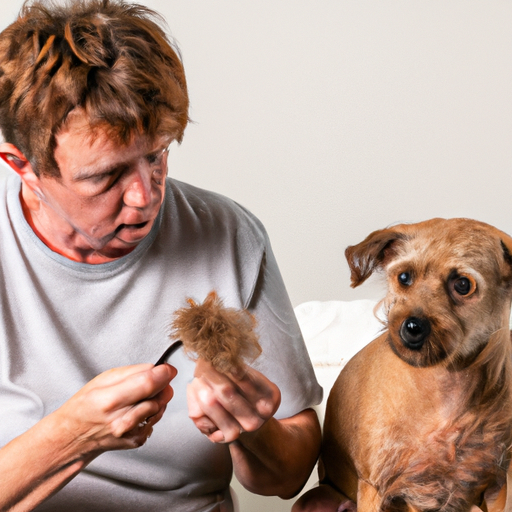“`markdown
Why is my Dog’s Hair Falling Out?
Understanding the Basics
As a pet parent, you might often find yourself asking, “why is my dog’s hair falling out?” You’re not alone. Many caregivers share the same concern. Losing hair is a natural process for dogs, much like how humans shed old or damaged hair. However, excessive hair loss or bald patches can be a sign of underlying health issues.
Main Reasons for Hair Loss
1. Allergies
Your dog might be allergic to certain foods, chemicals, or environmental factors. These allergies can lead to skin inflammation and hair loss. Symptoms may include:
- Excessive scratching and licking
- Red, inflamed skin
- Hair loss, particularly around the ears, stomach, and base of the tail
2. Parasites
Fleas, mites, and ticks can cause severe itching and subsequent hair loss. If you notice your dog scratching more than usual, it’s time to check for parasites.
3. Hormonal Imbalance
Certain conditions like hypothyroidism or Cushing’s disease can lead to hair loss in dogs. These conditions disrupt the normal functioning of hormones and can cause symptoms ranging from hair loss to changes in behavior.
Potential Treatments
There are several treatments available depending on the underlying cause:
| Cause | Treatment |
|---|---|
| Allergies | Special diet, medications |
| Parasites | Flea and tick control products |
| Hormonal imbalance | Hormone therapy, medication |
Preventive Measures
To prevent hair loss in dogs, consider these steps:
- Regular grooming: Brush your dog’s hair daily to remove loose hairs and stimulate the skin.
- Balanced diet: Ensure your dog is getting all the necessary nutrients.
- Regular vet checkups: Regular checkups can help detect potential issues early.
Frequently Asked Questions
Why is my dog losing hair in patches?
Hair loss in patches often indicates a local issue such as a fungal infection or parasites.
Can stress cause hair loss in dogs?
Yes, just like in humans, extreme stress or anxiety can lead to hair loss in dogs.
Should I take my dog to the vet for hair loss?
If your dog’s hair loss is accompanied by other symptoms such as changes in behavior, weight loss, or skin inflammation, it’s best to consult a vet.
Remember, your furry friend relies on you for their well-being. As a caregiver, your attention to their health can make all the difference. So keep an eye out, and know that there’s help and resources available for every question or concern you may have.
“`



